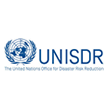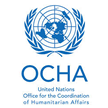- La UE y LAC, juntas en desastres naturales y humanitarios
- México, el país más vulnerable a desastres naturales de América Latina
- América Latina y el Caribe firman con la UE Un MdE sobre Cooperación en materia de Gestión Integral del Riesgo de Desastres
- El mundo está en la autopista hacia el infierno climático
- Informe de la Unesco advierte sobre el calentamiento global acelerado y el aumento del nivel del mar
The World Humanitarian Summit had ambitions to reform an overstretched, underfunded relief system. As the event wraps up, Devex asks what was achieved and what work remains. via Devex YouTube channel
The World Humanitarian Summit in Istanbul this week had ambitions to reform an overstretched global relief system. An estimated $15 billion gap stands between the resources available and the needs on the ground. Millions of people — mostly trapped in protracted conflicts and instability — are falling behind as a result.
After two days of high-level meetings, VIP-packed side events and dozens of individual announcements, the summit wrapped up with mixed results. Most notably, a “grand bargain” was struck between donors and relief organizations, trading more and more flexible funding for greater efficiency in aid delivery. Together, the two sides hope to find an extra $1 billion for humanitarian relief. Yet less progress was made on ending the man-made conflicts that have helped push global displacement to the highest level ever recorded.
Devex checks in on the grand bargain, as well as specific initiatives around cash delivery, the private sector, education in crises, where we stand on humanitarian reform, and crucially, what’s next.
EDITOR’S NOTE: Deloitte financially supported the reporter’s travel to Istanbul to attend the World Humanitarian Summit. Devex retains full editorial independence and responsibility for this content.
Read more international development news online, and subscribe to The Development Newswire to receive the latest from the world’s leading donors and decision-makers — emailed to you FREE every business day.
About the author
Elizabeth Dickinson is associate editor at Devex. Based in the Middle East, she has previously served as Gulf correspondent for The National, assistant managing editor at Foreign Policy, and Nigeria correspondent at The Economist.
- El Niño 2023-2024 América Latina y el Caribe
- Compendium of good practice on post disaster recovery in the Latin America and Caribbean Region: 12 Good practices
- Avances y desafíos de la cooperación internacional en desastres
- Informe de relatoría - Taller para la construcción de lineamientos estratégicos para la gestión del riesgo de desastre en América Latina y el Caribe
- Informe resumido, 17–19 de mayo de 2023: Reunión de alto nivel sobre la revisión intermedia del Marco de Sendai
















